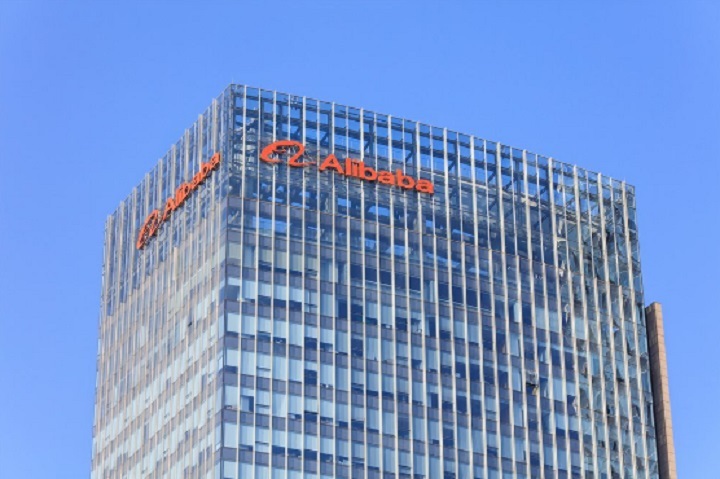In September of 2014, Alibaba Group Holding Ltd (NYSE:$BABA) decided to offer its shares to the public. This IPO went down in history as the biggest of its kind and helped the company’s market capitalization reach $231 billion. However, the IPO and increase in market capitalization was as good as it got for those with stocks in the Chinese e-commerce company.
From September 2014 to January 2016, Alibaba shareholders remained on a steady slope and had nothing to show for their investments in comparison to the 87% gain by Amazon shares over the same time frame. Many consider Amazon.com, Inc. (NASDAQ:$AMZN) and Alibaba to be on the same level, but as you will soon seen, there are considerable differences between the two companies.
Alibaba’s stock witnessed a significant turnaround during the raging bull move that occurred over the past two years. Since January of 2016, Alibaba’s stock has doubled versus a 65% gain for Amazon. Both stocks have had tremendous performances this year but Alibaba has surpassed Amazon’s stock so far this year with gains of 62% versus Amazon’s 33.5%.
As a result, the lingering question in the e-commerce world is: Is Alibaba better for your investment portfolio than Amazon?
Inexpensive Shares.
Following Alibaba’s announcement that the company will be turning public, BABA’s shares wavered throughout the first 15 months as a public e-commerce company. This should not come as a surprise since Alibaba faced numerous allegations that the company was selling counterfeit products. Investors with a passion for e-commerce investing also contended that Alibaba did not share the same global charm that Amazon is known for.
Despite Alibaba being the subject of numerous allegations, the company still has their fair share of advantages. First and foremost, Alibaba is guided by Jack Ma, a charming and ingenious entrepreneur. Second, Alibaba accounts for 80% of China’s online sales. Additionally, the e-commerce company owns PayPal Holdings Inc. (NASDAQ:$PYPL).
To date, Alibaba’s shares trade at cheaper prices than Amazon. Alibaba’s stock has a price-to-earnings ratio of 55.2 versus 184.7 for Amazon. It doesn’t end there however. Alibaba maintains a price-to-book ratio of 22.17 while Amazon sits at 10.43 and a price-to-free cash flow of 50.1 versus 44.
The only aspect where Amazon trumps Alibaba is price-to-sales ratio (22.4 vs 3.4). That said, this difference is caused by the fact that Amazon and Alibaba have different models for revenue. Amazon is mainly a first-party sales platform in which the company sells products directly to customers while Alibaba is a third-party platform that links buyers to sellers while charging a commission fee.
A company that just keeps growing.
Ever since the initial IPO, Alibaba has continued to grow at an accelerated rate. The Chinese e-commerce company maintains a compounded annual growth rate of 48.9% versus a 27.9% by Amazon over the same time period. Plus, investors speculate that the future will be even more promising for Alibaba. It has been predicted that Alibaba will see a revenue growth of 45% to 49% for fiscal 2017. Additionally, Alibaba has reported top line growth for 59.8% for the April quarter.
So why has Alibaba been growing at a rapid pace? Well, investors think that one of the main reasons is because Alibaba focuses its efforts on up and coming markets and developing economies in Asia. Meanwhile, Amazon focuses on mature markets in Europe or the United States. As of right now, Alibaba has 500 million users but it plans to reach around 2 billion over the course of the next 10 years.
Jack Ma reported that one of the main differences between Amazon and Alibaba is that Amazon seeks to have control over everything while Alibaba works to build partnerships. This could very well be the reason as to why Alibaba’s CEO promised President Trump that his company would work towards creating 1 million American jobs over the coming five years.
The Takeaway:
Though Alibaba’s current strategy seems to be working out, you should think about purchasing the stocks of both companies.
With the rapid growth that Alibaba has been experiencing, the brand is starting to gain respect around the globe. In fact, Alibaba’s cloud entered Gartner’s Magic Quadrant for IaaS, thus making it one of the most improved and advanced cloud service companies.
On the other side of the equation, Alibaba’s problems still remain on the surface of the company. For instance, in December, the United States authorities put Taobao, one of Alibaba’s most fruitful units, back in the blacklist. Why? Again, due to the allegations that Alibaba was selling counterfeit products.
In regards to Amazon, investors know that this company has a predictable investment with advantageous growth runways.
All in all, it is thought that Alibaba’s stock will beat out Amazon’s stock over the coming two years as a result of the company’s accelerated growth. Therefore, it’s a good idea to include both Alibaba and Amazon in your investment portfolio.
Featured Image: twitter











